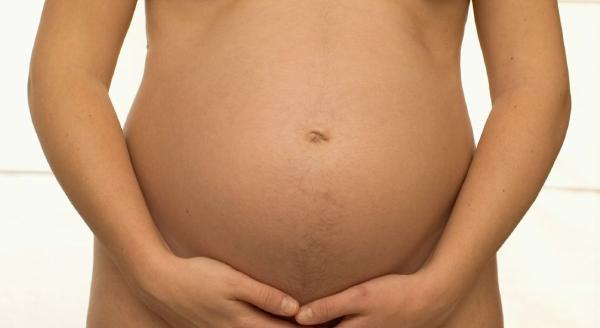One of the great challenges to our immune system is to recognize “foreign invaders.” And there can be no greater foreign invader than that little bundle of joy we call all children, especially during pregnancy. Our immune system downregulates during pregnancy and a growing theory, the pregnancy compensation hypothesis, suggests that the downregulation has some unintended but increasingly concerning consequences, autoimmunity.
In the industrialized world, women are far more likely to develop autoimmune diseases – diseases in which the immune system mistakes us for foreign and mounts a response. The list of autoimmune diseases includes rheumatoid arthritis, multiple sclerosis, and lupus. There is also a higher incidence of thyroid cancer among women than men. The pregnancy compensation hypothesis (PCH) seeks to explain these disparities (?) based on differences in a gender-specific immune system.
In brief, the immune system must find a way to simultaneously protect the mother from the common pathogens while tolerating fetal antigens. It usually is a process entangling hormones and genes, but an evolutionary mismatch in industrial societies has this evolved ancient system triggering an unwanted response. The mismatch, women reproductive status; they are not pregnant or breastfeeding during most of their adult life as was the case of our more ancient ancestors. Here is the authors brief:
- Among several vertebrate species, us including, innate and adaptive immune function varies with gender.
- Women have more robust responses in immune responses to vaccinations and better outcomes from infections and sepsis than men.
- Autoimmune diseases with increased innate and adaptive immune responses are often more typical in women. Women also have fewer non-reproductive cancers, e.g., colon, bladder, kidney, then men.
- Environmental exposure alone does not explain these differences.
“For the pregnant person, maintaining a pathogen-competent immune system while regulating the immune response to pregnancy (which may be considered ‘foreign’ to the maternal immune system) is a balancing act that involves numerous immunoregulatory mechanisms driven by both maternal and fetal signals. To accommodate these dual needs, the maternal immune system is not uniformly downregulated during pregnancy. Instead, it is differentially modulated throughout the gestational period.”
In essence, when not pregnant or lactating, the female immune system is “hyper” vigilant, and has a higher incidence of false positives, mistaking self as foreign.
Additionally, industrialized society with its abundance of calories and enhanced hygiene has resulted in higher levels of sex-related hormones, testosterone, estrogen, and progesterone. This, in turn, has increased the incidence of both sex-related cancers, e.g., prostate and breast, and further, heighten gender differences in immune responsiveness.
The maternal immune system is recalibrated throughout pregnancy and lactation to accommodate the fetus, downregulating from being pro-inflammatory to anti-inflammatory, especially in the last two trimesters. Estriol, a placentally derived hormone, is felt to play a critical role in immunomodulation through its effect of regulatory T cells. The regulatory spike seen in estriol during pregnancy has been associated with improvement in autoimmune symptoms that also occur during the last two trimesters. While 75% of women with rheumatoid arthritis show symptomatic improvement during the last two trimesters and women with multiple sclerosis show a lower relapse rate during the same time frame, the effect is uneven. Women with lupus, a more complex autoimmunity do not see a benefit from the estriol spike.
The researchers go on to suggest that alterations in sex chromosomes attendant to live births via a placental rather than marsupial pathway may also play a role in gender differences in immune function. The point out that coincident with the rise of placental births, additional genetic material was added to both the X and Y chromosome. While much of the additional genetic data is suppressed, there is evidence that more Y than X genetics are inactivated providing a mechanism by which women have “sex-specific immunomodulation.”
With respect to cancers, they suggest that the proclivity for thyroid cancers in women is also related to PCH. In this instance, the thyroid gland enlarges during pregnancy in its role of iodine regulation. They believe that the increased incidence of papillary thyroid cancer in women of industrialized societies is like the “autoimmune response.” a result of an environmental mismatch and a more ancient immune system.
Source: The Pregnancy Pickle: Evolve Immune Compensation Due to Pregnancy Underlies Sex Differences in Human Diseases Trends in Genetics DOI:10.1016/tig.2019.04.008




